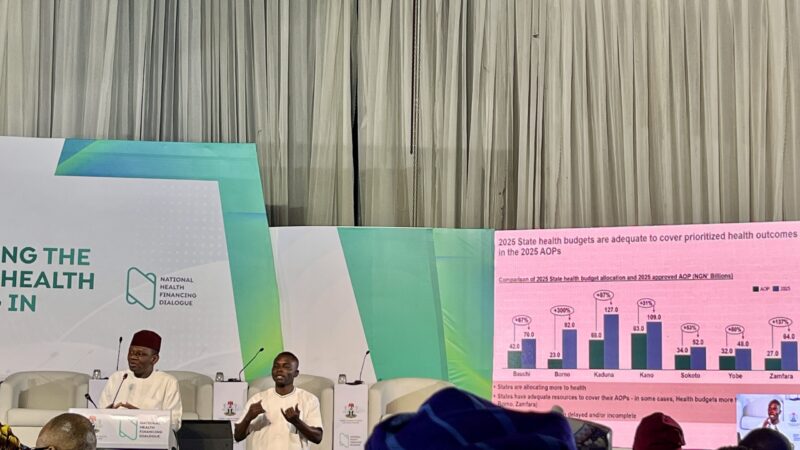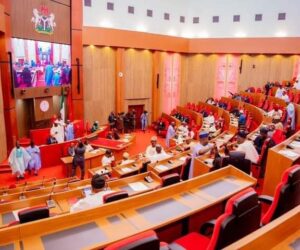Finance and health experts have urged government at all levels to ensure that Nigeria’s growing fiscal revenues are matched with accountable health spending that delivers tangible outcomes.
They warned that while recent reforms have boosted public revenues, weak planning and poor execution continue to hinder health programmes, leaving citizens without real improvements in access or quality of care.
This concern was raised on Wednesday during the third day of the ongoing National Health Financing Policy Dialogue in Abuja.
Translating fiscal gains into outcomes
Speaking at the event, Akin Oyebode, Commissioner for Finance for the Ekiti State Government said Nigeria’s reform agenda has boosted fiscal revenues, but warned that higher inflows must be matched with prudent spending and real outcomes.
Mr Oyebode, who is also the Chairman of the Forum of Finance Commissioners of Nigeria, noted that the fiscal compact between federal, state and local governments is an important milestone.
He, however, warned that sudden increases in inflows could trigger inflationary pressures if not carefully managed.
“Higher inflows are welcome, but if they are not translated into executed expenditure, they are just numbers on paper,” he cautioned.
Mr Oyebode highlighted weaknesses in existing health programmes, particularly nutrition initiatives, which he described as fragmented and poorly coordinated.
He added that while social programmes such as school feeding were important, they must be scaled nationally to deliver impact.
Mr Oyebode also flagged the growing challenge of health-workers migration, driven by widening pay disparities across states.
He said in some places, up to 20 per cent of staff are leaving because of uneven pay.
“Without a stable workforce, primary health care will remain weak, no matter how much money is put in,” he said.
Rising costs and efficiency reforms
Speaking on financing reforms, Muyi Aina, the Executive Director of the National Primary Health Care Development Agency (NPHCDA), warned that Nigeria’s health costs are rising faster than available budget revisions.
Mr Aina cited vaccines as an example, noting that even with the most rigorous forecasts, year-on-year costs for essential commodities such as childhood immunisation, TB medicines and programme operations continue to escalate.
He stressed that while the federal, state and local governments are constitutionally required to co-finance primary health care, actual contributions remain inconsistent, creating gaps in service delivery.
“With resources tied, and costs rising, we must maximise the value of every naira spent. That means efficiency, transparency and accountability must go hand in hand with new money,” he said.
READ ALSO: Tinubu orders mandatory health insurance in MDAs
He proposed several options to expand fiscal space, including the full implementation of at least one per cent of the Consolidated Revenue Fund for the Basic Health Care Provision Fund (BHCPF), targeted domestic levies, and efficiency reforms.
“Donors and partners can support, but Nigeria must first demonstrate its own commitment,” he said.
The Minister of State for Health and Social Welfare, Iziaq Salako, had on Monday said that the ministry is considering legislation to double BHCPF funding from one to two per cent of consolidated revenue.
Mr Salako said the federal government has consistently funded the BHCPF and introduced emergency allocations to cushion the suspension of foreign aid.
About the event
The dialogue, which run from 1-4 September has brought together policymakers, civil society actors, private-sector players and development partners to translate commitments into practical strategies for sustainable health-care funding.
Themed “Reimagining the Future of Health Financing in Nigeria,” the dialogue is expected to generate commitments aimed at reducing out-of-pocket spending, improving accountability and boosting domestic investment in the health sector.











